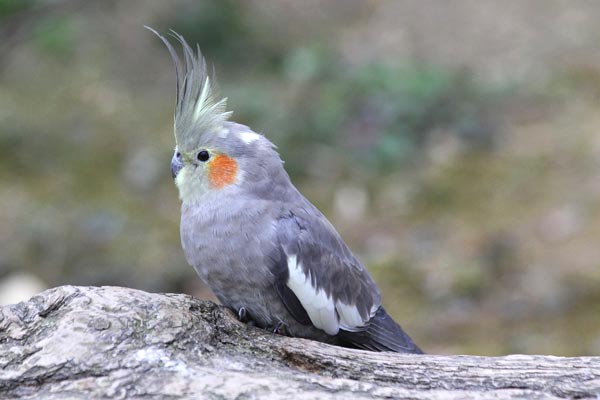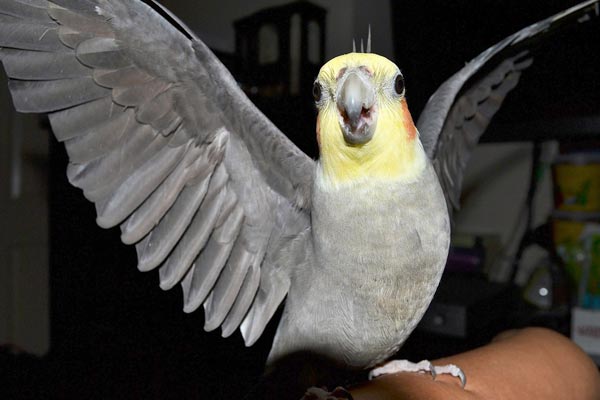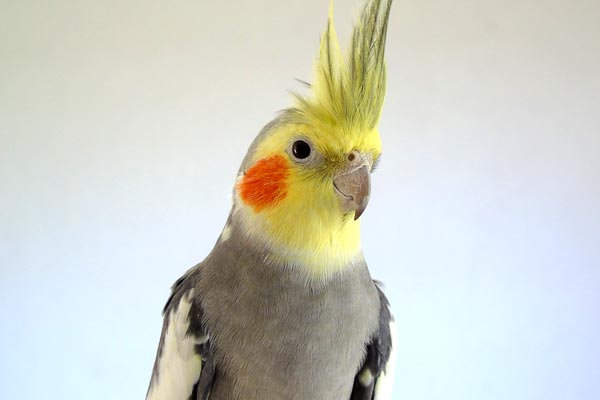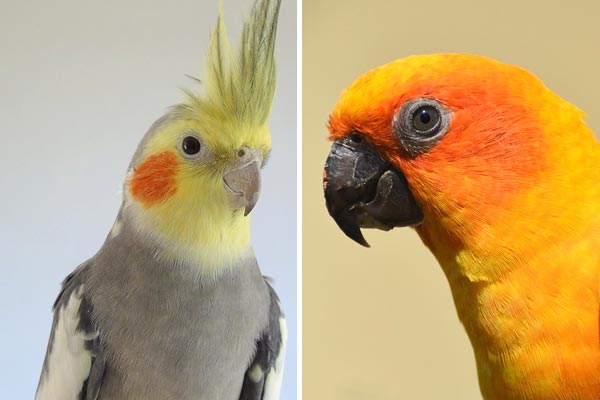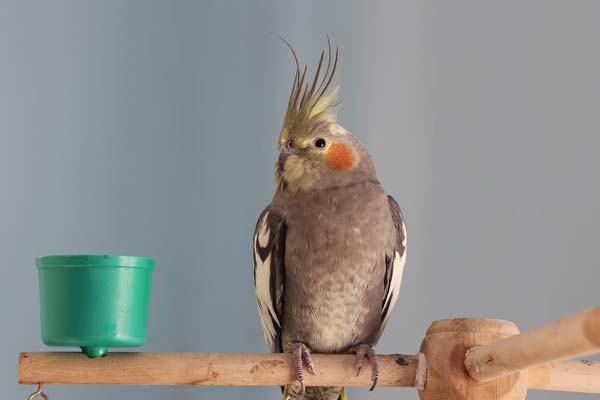Should I Cover My Cockatiels Cage At Night: Pros and Cons of Cage Covers
Cockatiels are smart and sensitive small parrots that exist very differently in captivity than they do in the wild.
A wild cockatiel would typically roost for the night with their family group perched high up in the branches of a tree.
But a pet cockatiel typically goes to sleep inside a cage. This brings up a common question new cockatiel keepers ask.
Should you cover your cockatiel’s cage at night? Let’s find out!
Should I Cover My Cockatiels Cage At Night
As Talk Cockatiels points out, there is no single answer to the question should I cover my cockatiels cage at night.
Different cockatiel keepers handle the issue of covering or not covering the cage differently.
Read on to learn about the pros and cons of covering your cockatiel cage.
Learn About Night Frights in Cockatiels
In this YouTube video, you can learn about one of the critical issues facing cockatiel keepers today – cockatiel night frights.
This is the main reason why the answer to the question should I cover my cockatiels cage at night is not cut and dried. You may need to experiment to find just the right setup to prevent your cockatiel from having dangerous night frights.
To Cover or Not to Cover a Cockatiels Cage
As you just learned in the previous section here, cockatiels are particularly prone to night frights.
Night frights get their name because they happen at night in low light conditions.
No one is completely sure exactly what triggers a cockatiel to have a night fright.
What video footage does reveal is that the sleeping cockatiel wakes up suddenly and begins to thrash around inside the cage. Often the bird will beat their wings against the cage bars and try to fly from one side to the other inside the cage.
This can cause life-threatening injuries and is sometimes fatal.
Parrot Forum Parrot Owner’s Community highlights how important it is to monitor your cockatiel at night both with the cage covered and without the cover.
You may find that your particular cockatiel seems to do better with a cage cover on or off. This is especially the case if you rescue a cockatiel who is used to having its cage covered or uncovered at night.
What Causes Night Frights in Pet Cockatiels
To understand more about why a pet cockatiel might have a night fright at night, it can help to learn more about where cockatiels sit in the food chain in their natural wild habitats.
Cockatiels are a prey species. They typically cohabitate in family flocks or larger interfamily communities where there is safety in numbers. And if danger approaches from any direction, there are many individuals who can sound the alarm.
For this reason, a single cockatiel alone in a cage at night is going against the natural instincts that these birds have to group together for safety.
If there is anything strange or amiss, your bird will sense it and react at once.
While there is no definitive study about what causes cockatiel night frights, Bird Tricks identifies these types of situations as being more likely to trigger a night fright:
- Drafts.
- Sudden lighting changes.
- Loud noises.
- Bugs.
- Shadows.
- Other pets.
- Walking too close by the cage without identifying yourself.
As you can see, any type of sudden change in lighting, sound, or movement could potentially trigger a night fright.
Now that you have this foundation, it will be easier to understand the pros and cons of using a cage cover for your cockatiel at night.
Benefits and Pros of Covering a Cockatiels Cage at Night
Perhaps the number one benefit or pro of covering a cockatiel’s cage at night is to limit the major triggers for cockatiel night frights.
A cage cover can muffle loud noises, block drafts or shadows and lessen changes in lighting.
A cage cover may also help to prevent insects from getting inside the cage to frighten your bird.
And a cage cover may prevent sensing motion from nearby pets or people.
There is no doubt your cockatiel will have the chance to sleep more soundly with a steady temperature in a dark, quiet place free from insects, drafts, or intrusions.
Drawbacks and Cons of Covering a Cockatiels Cage at Night
However, there can also be important drawbacks and cons to consider before moving ahead to cover your cockatiel’s cage at night.
One of the most significant drawbacks is a lack of ventilation. You want your bird to be able to get enough fresh air during the night.
This is especially important when you consider that, as Cockatiel Cottage explains, your bird needs a good 10 to 12 hours of uninterrupted sleep every night to stay healthy.
This is in addition to any naps your cockatiel may take during the day.
Since most people don’t even come close to getting their recommended eight hours of sleep each night, let alone 10 or 12 hours of sleep, it can be challenging to avoid waking your cockatiel up without using a cage cover.
But a cage cover that is too restrictive may cut off ventilation and oxygen flow into the cage, creating stale unhealthy air that also prevents deep sleep.
Using a cockatiel cage cover may also present danger in that your bird’s nails could get caught in the fabric. It is very important to keep your cockatiel’s nails trimmed and filed if you plan to use a cage cover for your bird.
However, some cockatiels are very frightened of the cage cover the first time they see it. If this happens with your cockatiel, try covering only half the cage at first until your bird gets used to it.
Yet another potential drawback to using cockatiel cage covers is that this can create more of a nested atmosphere inside the cage that is conducive to egg-laying.
Egg binding in female cockatiels of breeding age is a very serious health concern that can quickly become fatal. If you have a broody female cockatiel, you may want to stop using the cage cover until she is less hormonal.
What Type of Cockatiel Cage Cover Should You Choose
New cockatiel owners are often understandably confused about whether to cover their bird’s cage or not. Since there is no universal consensus on the topic, it is often necessary to simply try it both ways and see what seems to work best.
If you do decide to use a cage cover for your cockatiel at night, you will want to choose the cover you use carefully.
Choose a dark-colored cover
One of the benefits of cockatiel cage covers is to block light and shadow. To do this effectively, the cover you choose should be a dark light-blocking fabric.
Choose a breathable fabric cover
To help encourage good nighttime ventilation, you will want the cover to be made from a breathable type of fabric that is porous and allows for good airflow.
The material should be thick enough to block drafts but not so thick air cannot get through.
Choose a loose cover
It may feel tempting to choose a fitted cover that conforms precisely to the shape and size of your cockatiel cage.
But if you do this, you may limit ventilation and create a safety issue if you need to rescue your cockatiel from night frights.

